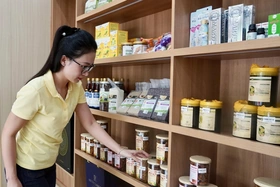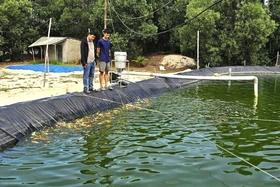4bqi4buU4bqk4bq0xKhRReG7uOG7uHbhurLhu7Lhu5fhu5ZAUUzhurLDg+G7kyNFU+G7mOG6tOG7l+G7tuG7luG6tOG7suG7tlRSVEBM4bu44bq0SuG7luG7mOG7lkBFUeG6tEBMxKjhu5Thu7jhurThu5ZT4bq04buSReG7tlLhurThu7Lhu7ZUSiPEqEDhu5ZUU+G6oi/hu5ThuqTDg+G6ouG7suG6tMSoUUXhu7jhu7h24bqy4buy4bq5TEVK4bqyw4Phu5fhu5RM4bq04buy4bu2VCjhu5ZTxKhM4bq0VOG7kuG6tOG7kyNFU+G7mOG6tOG7l+G7tuG7luG6tEpM4buS4buWU0zhu7jhurRK4buW4buY4buWQEVR4bq0QOG7tkVT4bu44buSVOG7tlJFQOG7llRT4bq04buWU+G6tEXhu5jhu7bhu5bEqCNRQCPhu7ZM4bq0ReG7uOG6tEDhu5RM4bq04buy4bu2VMSoTOG7uOG7uOG6tFThu5LhurThu5ZTQEzhu5jhu7ZFQOG7llPhu5jhurRFU0rhurRF4buy4buyUT7hu5ZT4buY4bq0SuG7luG7mOG7lkBFUeG6tEBMxKjhu5RTVFFU4buYPuG6tEDhu5Thu7ZUI+G7mOG7lFQjQOG6tEDhu5RM4bq0TFNA4buW4bu2TOG6tOG7uMSoVOG7skzhurRU4buS4bq0ReG7mOG7tuG7lsSoI1FAI+G7tkVR4bq0RVNK4bq04bu2I+G7tkVR4bq0SkwoTFFU4buyUkxTQOG6tEXEqEDhu5Yo4buWQOG7lkzhu7hB4bq04buX4buU4buW4bu44bq04buWUyhUUShM4bu44bq0xKjhu5RFU+G7mOG7llPhu5jhurRA4buUTOG6tEDhu7ZFSuG7lkDhu5ZUU0VR4bq0UkxA4buUVErhu7jhurRU4buS4bq0UkVTReG7mOG7llPhu5jhu7nhurThu7Lhu7ZUSiPEqOG7llPhu5jhu7nhurRFU0rhurRSReG7tlBMQOG7llPhu5jhurRF4buY4bu24buWxKgjUUAj4bu2RVHhurThu7Lhu7ZUSiPEqEDhu7jhurRAVOG6tFJUSkzhu7ZT4bq0RVNK4bq04buWU0BMUVHhu5bhu5hMU0DhurRF4buy4buy4bu2VEXEqOG7lEzhu7hB4bqiL+G7ssOD4bqi4buy4bq0xKhRReG7uOG7uHbhurLhu7Lhuq9USj7hurLDg+G6ouG7llLhu5jhurTEqFFF4bu44bu4duG6suG7luG6sUxTQEzhu7bhurLhurThu7jhu7bEqHbhurLhu5RAQOG7suG7uOG7tS8vxKhB4buIRVThu7QjRVPhu5hA4bu24buWQShTL0pM4bu4UEBU4buyL1NMKeG7uC/huqbhuqjDguG6qC/huqThuqThuqhK4bqk4bqmw4LhuqTDguG6qOG6rEDhuqTEkOG6pOG6qlHhuqgtQOG7tkVT4buYLUJCQkEpTOG7iOG7suG6suG6tEVRQHbhurLhu5MjRVPhu5jhurThu5fhu7bhu5bhurThu7Lhu7ZUUlRATOG7uOG6tErhu5bhu5jhu5ZARVHhurRATMSo4buU4bu44bq04buWU+G6tOG7kkXhu7ZS4bq04buy4bu2VEojxKhA4buWVFPhurLhurQvw4PhuqIv4buyw4PhuqLhu7LhurTEqFFF4bu44bu4duG6suG7suG6sUXhu7JA4buWVFPhurLDg2ZUxKhFUeG7uOG6tEXhu7Lhu7JRPuG6tEBMxKjhu5RTVFFU4buY4buWxKhFUeG6tEVKKEVTxKhMUkxTQOG7uOG6tOG7llPhurThu7jhu5Thu7bhu5ZS4buy4bq04buy4bu2VEojxKhA4buWVFPhurThu5ZT4bq0w7rhu5ZT4buU4bq0ZuG7llPhu5ThurThurfhu5bhu7hA4bu24buWxKhAQeG6tOG7keG7lFRAVOG7teG6tOG6uUHhu5fhuqIv4buyw4PhuqLhu7LhurTEqFFF4bu44bu4duG6suG7suG6r1RKPuG6ssODIMSoxKhU4bu2SuG7llPhu5jhurRAVOG6tOG6t0zhu7IjQD7hurThurfhu5bhu7ZMxKhAVOG7tuG6tFThu5LhurRA4buUTOG6tOG7kyNFU+G7mOG6tOG7l+G7tuG7luG6tOG6t0zhu7JF4bu2QFJMU0DhurRU4buS4bq0IOG7mOG7tuG7lsSoI1FAI+G7tkzhurRFU0rhurThu5kj4bu2RVHhurThurdMKExRVOG7slJMU0DhurRo4buYIz5MU+G6tOG7keG7lCPhurThu5MjVMSo4bu54bq04buWU+G6tEDhu5RM4bq0xKhUU0BMPEDhurRU4buS4bq04buWU0BM4bu2U0VA4buWVFNFUeG6tOG7llNATOG7mOG7tkVA4buWVFPhu7nhurTEqFHhu5ZSRUBM4bq0xKjhu5RFU+G7mEzhu7nhurRFU0rhurThu7JFU0pMUuG7lsSo4bu44bu54bq0SuG7luG7mOG7lkBFUeG6tEDhu7ZFU+G7uOG7klThu7ZSRUDhu5ZUU+G6tOG7llPhurRF4buY4bu24buWxKgjUUAj4bu2TOG6tOG7luG7uOG6tEDhu5RM4bq04oCcUEw+4oCd4bq0QFThurThu7gj4bu4QEXhu5ZTReG7iFFM4bq0SkwoTFFU4buyUkxTQOG6tOG7llPhurRA4buUTOG6tEXhu5jhu7bhu5bEqCNRQCPhu7ZFUeG6tOG7uEzEqEBU4bu2QeG6tOG7l+G7lOG7tlQj4buY4buU4bq0ReG6tOG7klTEqCPhu7jhurRUU+G6tErhu5bhu5jhu5ZARVHhurRA4bu2RVPhu7jhu5JU4bu2UkVA4buWVFPhurThu5ZT4bq0ReG7mOG7tuG7lsSoI1FAI+G7tkzhu7nhurQoReG7tuG7llQj4bu44bq0RUooRVPEqExK4bq0QEzEqOG7lFNUUVThu5jhu5ZM4bu44bq04buURShM4bq04buITExT4bq0ReG7suG7slHhu5ZMSuG6tOG7llPhurThu7Lhu7ZFxKhA4buWxKhFUeG6tOG7suG7tlRKI8SoQOG7llRT4bu54bq0UUxFSuG7llPhu5jhurRAVOG6tEDhu5RM4bq0TOG7uEBF4buIUeG7luG7uOG7lFJMU0DhurRU4buS4bq04buWU0BMUVHhu5bhu5hMU0DhurRATMSo4buUU1RRVOG7mD7hurRF4buy4buyUeG7lsSoRUDhu5ZUU+G6tFJUSkxR4bu4QeG6tOG7l+G7lEzhu7hM4bq0UlRKTFHhu7jhurQjQOG7llHhu5Z6TOG6tEpFQEXhu4hF4bu4TOG7uOG6tOG7llPhurThu5JU4bu2TOG7uEDhu7Y+4bu54bq04buW4bu24bu24buW4buYRUDhu5ZUU+G7ueG6tEVTSuG6tEXhu7QjRcSoI1FAI+G7tkxB4bqiL+G7ssOD4bqi4buy4bq0xKhRReG7uOG7uHbhurLhu7Lhuq9USj7hurLDg+G7l+G7lEzhurRATMSo4buUU+G7lsSoRVHhurThu5ZT4buSVOG7tlJFQOG7llRT4bq0QEzEqOG7lFNUUVThu5g+4bq04buWU+G7kuG7tkXhu7hA4bu2I8SoQCPhu7ZM4bq04buWU+G6tEXhu5hMU8So4buWTOG7uOG6tEVTSuG6tCNT4buWQOG7uOG6tCNTSkzhu7bhurRA4buUTOG6tOG6t0zhu7JF4bu2QFJMU0DhurRU4buS4bq0IOG7mOG7tuG7lsSoI1FAI+G7tkzhurRFU0rhurThu5kj4bu2RVHhurThurdMKExRVOG7slJMU0DhurThu5RF4bu44bq04buITExT4bq04bu2TFFFQOG7lihMUT7hurQpTFFRLUzhu7Qj4buW4buy4buyTErhurRAVOG6tFJMTEDhurQpVOG7tlDhurRKTFJFU0rhu7hB4bq0IEpS4buWU+G7luG7uEDhu7ZFQOG7lihM4bq04buy4bu2VMSoTEoj4bu2TOG6tOG7tkzhu5JU4bu2UuG7ueG6tMSoUVThu7hMUT7hurRF4bu44bu4VMSo4buWRUBMSuG6tCnhu5ZA4buU4bq0SuG7luG7mOG7lkBFUeG6tEDhu7ZFU+G7uOG7klThu7ZSRUDhu5ZUU+G7ueG6tOG7lEXhu7jhurRFUeG7uFThurThu4hMTFPhurRMUuG7suG7lEXhu7jhu5Z6TEpB4bq04buV4buyTMSo4buW4buS4buWxKhFUVE+4bu54bq0QOG7lEzhurRK4buW4buY4buWQOG7lnpFQOG7llRT4bq04bu2RUBM4bq0VOG7kuG6tEpUxKgjUkxTQOG7uOG6tCPhu7JUU+G6tOG7tkzEqEzhu5bhu7JA4bq04buW4bu44bq0ROG6rEHhuqh44bq0w4BD4bu54bqq4bqmw4LhurRUI0DhurRU4buS4bq0xJDhu7nDguG6pEPhurThu5Lhu5ZRTOG7uOG6oOG7ueG6tEVTSuG6tEDhu5RM4bq0SuG7luG7mOG7lkDhu5Z6RUDhu5ZUU+G6tOG7tkVATOG6tFThu5LhurRKVMSoI1JMU0Dhu7jhurQj4buyVFPhurThu7ZM4bu4I1FA4bq0SkxR4buWKEzhu7Y+4bq04buW4bu44bq0QuG6pkFD4bqoeOG6tMOA4bqq4bu5QuG6qEThurRUI0DhurRU4buS4bq0xJDhu7nDgsOC4bqm4bq04buS4buWUUzhu7jhuqBB4bqiL+G7ssOD4bqi4buy4bq0xKhRReG7uOG7uHbhurLhu7Lhuq9USj7hurLDg+G6sSPhu7bhu7ZMU0BRPuG7ueG6tEDhu5RM4bq04buy4bu2VCjhu5ZTxKhM4bq04buUReG7uOG6tOG7llLhu7JRTFJMU0BMSuG6tEBMxKjhu5RTVFFU4buYPuG6tOG7llPhurThu7Lhu7ZUSiPEqEDhu5ZUU+G7ueG6tD7hu5ZMUUrhu5ZT4buY4bq04buU4buW4buY4buULeG7tCNFUeG7lkA+4bu54bq0xKhRTEVT4bq04buy4bu2VEojxKhA4bu44bq04buSVOG7tuG6tEDhu5RM4bq0UkXhu7ZQTEBB4bq04bq1PEVS4buyUUzhu7jhurThu5ZTxKhRI0pM4bq0VChM4bu24bq04bqsw4LhurThu5Thu5bhu5jhu5QtQEzEqOG7lOG6tOG7mOG7tkxMU+G7lFQj4bu4TOG7uOG6tMSoVChM4bu24buWU+G7mOG6tEVT4bq0ReG7tkxF4bq0VOG7kuG6tOG6rOG6tOG7lEzEqEBF4bu2TOG7uOG7ueG6tFQoTOG7tuG6tOG6quG7ucOCw4LDguG6tOG7lEzEqEBF4bu2TOG7uOG6tFThu5LhurTEqOG7tlThu7Lhu7jhurQjQOG7llHhu5Z64buWU+G7mOG6tClFQEzhu7Yt4bu4RSjhu5ZT4buY4bq0QEzEqOG7lFNUUVThu5g+4bu54bq0RVNK4bq0UlThu7ZM4bq0QOG7lEVT4bq04bqmw4LhurRSVEpMUeG7uOG6tEXhu7Lhu7JRPuG7llPhu5jhurThu5Thu5bhu5jhu5QtQEzEqOG7lOG6tEVTSuG6tOG6u1NATOG7tlNMQOG6tFThu5LhurThu5fhu5Thu5ZT4buY4bu44bq0w4DhurtU4buX4bqg4bq04buy4bu2VMSoTOG7uOG7uEzhu7jhurThu5ZT4bq0QOG7lEzhurThu7Lhu7ZUSiPEqEDhu5ZUU+G6tFThu5LhurRU4bu2xKjhu5Thu5ZK4bu44bu54bq0UeG7llHhu5ZM4bu44bu54bq04bu4QOG7tkUp4buITOG7tuG7tuG7lkzhu7jhu7nhurThu7gj4buyTOG7tuG6tOG7uClMTEDhurRAVFJFQFRM4bu44bu54bq0RVNK4bq0U0xA4bq0UkxRVFPhu7jhu7nhurThu4jhu7bhu5ZT4buY4buWU+G7mOG6tOG7suG7tkXEqEDhu5bEqEVR4bq0TOG7kuG7kuG7lsSo4buWTFPEqD5B4bq0IEpK4buWQOG7llRTRVFRPuG7ueG6tFQoTOG7tuG6tOG6quG7ueG6qsOCw4LhurThu5RMxKhAReG7tkzhu7jhurRU4buS4bq04bu24buWxKhM4bu54bq04bu2I+G7iOG7iEzhu7bhu7nhurRFU0rhurTEqEXhu7jhu7hFKEXhurRF4bu2TOG6tMSoReG7tkxK4bq04buSVOG7tuG6tEVTSuG6tOG7skzhu7hALcSoVFNA4bu2VFFRTErhurQj4bu44buWU+G7mOG6tCNTUkVTU0xK4bq0RUzhu7bhu5ZFUeG6tChM4buU4buWxKhRTOG7uEHhuqIv4buyw4PhuqLhu7LhurTEqFFF4bu44bu4duG6suG7suG6r1RKPuG6ssODZuG7lihM4bu4QFTEqFDhurThu5JF4bu2UuG7llPhu5jhurThu5RF4bu44bq0RVHhu7hU4bq0I1NKTOG7tuG7mFRTTOG6tOG7uOG7luG7mFPhu5bhu5Lhu5bEqEVTQOG6tEDhu7ZFU+G7uOG7klThu7ZSRUDhu5ZUU+G7uOG6tEDhu5Thu7ZUI+G7mOG7lOG6tEDhu5RM4bq0RcSoQOG7lihM4bq0ReG7suG7slHhu5bEqEVA4buWVFPhurRU4buS4bq0SuG7luG7mOG7lkBFUeG6tEBMxKjhu5RTVFFU4buYPuG6tEVA4bq0RVFR4bq04bu4QEXhu5hM4bu4QeG6tGhUQEXhu4hRPuG7ueG6tEDhu5RM4bq0I+G7uEzhurRU4buS4bq0w6lMVOG7mOG7tkXhu7Lhu5Thu5bEqOG6tOG6u1Phu5JU4bu2UkVA4buWVFPhurThu5U+4bu4QExS4bq0w4DDqeG6u+G7leG6oOG6tOG7llPhurRSVFPhu5ZAVOG7tuG7llPhu5jhurRFU0rhurTEqFRTQOG7tlRRUeG7llPhu5jhurRFKOG7lkVT4bq04buWU+G7klEjTFN6ReG6tEVTSuG6tFJFU0Xhu5jhu5ZT4buY4bq0UeG7lihM4bu4QFTEqFDhurRK4buW4bu4TEXhu7hM4bu44bq0QOG7lOG7tlQj4buY4buU4bq0QOG7lEzhurTDuuG7lkxAU0VS4bq0IFPhu5ZSRVHhurThurlMRVFA4buU4bq04bq7U+G7klThu7ZSRUDhu5ZUU+G6tOG7lT7hu7hATFLhurTDgMO6IOG6ueG6u+G7leG6oOG6tEXhu7Lhu7JR4buWxKhFQOG7llRT4bq04buUReG7uOG6tOG7iExMU+G6tOG7suG7tlRS4buWU0xTQEHhuqIv4buyw4PhuqLhu7LhurTEqFFF4bu44bu4duG6suG7suG6r1RKPuG6ssODZ0VTPuG6tFHhu5YoTOG7uEBUxKhQ4bq04buSReG7tlLhu7jhurThu5RFKEzhurThu7g+U8So4buU4bu2VFPhu5Z6TErhurQp4buWQOG7lOG6tErhu5bhu5jhu5ZARVHhurRA4bu2RVPhu7jhu5JU4bu2UkVA4buWVFPhurThu4g+4bq0TFLhu7JRVD7hu5ZT4buY4bq04buSReG7tlLhurRSVFPhu5ZAVOG7tuG7llPhu5jhurThu7g+4bu4QExS4bu44bq0w4DEqEVSTOG7tkXhu7jhuqDhurTEqFRTU0zEqEBMSuG6tEBU4bq0QOG7lEzhurThurtTQEzhu7ZTTEDhurRU4buS4bq04buX4buU4buWU+G7mOG7uOG6tMOA4bq7VOG7l+G6oOG6tEVTSuG6tOG7uFJF4bu2QOG7suG7lFRTTOG7uEHhurThu5fhu5RMPuG6tCPhu7hM4bq04bu4VOG7kkApReG7tkzhurThu5JU4bu24bq04bu4UUUj4buY4buUQEzhu7bhurRSRVNF4buYTFJMU0Dhu7nhurRA4bu2RcSoTEXhu4jhu5ZR4buWQD7hu7nhurRU4bu24bq0xKhRVOG7uExKLVFUVOG7suG6tOG7kkXhu7ZS4buWU+G7mOG6tEBMxKjhu5RTVFFU4buYPuG6tCnhu5ZA4buU4bq0RSNAVFJFQExK4bq0QExS4buyTOG7tkVAI+G7tkzhurTEqFRTQOG7tlRR4bu54bq0RSNAVFJFQOG7lsSo4bq04buSTExK4buWU+G7mOG7ueG6tEVTSuG6tErhu7bhu5ZTUOG7llPhu5jhurRA4bu2VCPhu5jhu5Thu7jhu7nhurRFI0BUUkVA4buWxKjhurThu7JUI1FA4bu2PuG6tFJFUyPhu7ZM4bq04buURVNKUeG7llPhu5jhu7nhurRMU+G7uCPhu7bhu5ZT4buY4bq0TFMo4buW4bu2VFNSTFNARVHhurThu5Q+4buY4buWTFNM4bq0QOG7lOG7tlQj4buY4buU4bq0UuG7lsSo4bu2VOG7iOG7lkVR4bq04buy4bu2VEojxKhA4bu44bu54bq0RVNK4bq04buI4buWVFFU4buY4buWxKhFUeG6tOG7mEXhu7jhurRATMSo4buUU1RRVOG7mD7hurTDgOG7iOG7llThu5hF4bu44bqgQeG6oi/hu7LDg+G6ouG7suG6tMSoUUXhu7jhu7h24bqy4buy4bqvVEo+4bqyw4NmTChM4bu2ReG7mOG7llPhu5jhurThu7hA4bu2TFPhu5hA4buU4bu44bq04buWU+G6tEXhu7QjRcSoI1FAI+G7tkzhurRFU0rhurThu5Lhu5bhu7jhu5RM4bu24buWTOG7uOG7ueG6tFMjUkzhu7ZUI+G7uOG6tExTQEzhu7bhu7Lhu7bhu5bhu7hM4bu44bu54bq0xKhUVOG7skzhu7ZFQOG7lihM4bu44bu54bq0RVNK4bq04buWU0rhu5Yo4buWSiNFUeG7uOG6tOG7lEUoTOG6tOG7mOG7tkVKI0VRUT7hurRF4buy4buyUeG7lkxK4bq0RSNAVFJFQOG7lsSo4bq0Skwo4buWxKhM4bu44bq0QFThurThu7ZM4buyUUXEqEzhurThu5QjUkVT4bq0UUXhu4hU4bu24bq04buWU+G6tOG7uOG7lOG7tuG7llLhu7LhurThu5JF4bu2UuG7llPhu5jhurTDgEUjQFRSRUDhu5bEqOG6tOG7kkxMSuG7llPhu5jhurRSRcSo4buU4buWU0zhu7jhu7nhurRUPD7hu5hMU+G6tEVRTOG7tkDhurRKTCjhu5bEqEzhu7jhu7nhurRFU0rhurThu7JUKUzhu7bhurRFUUzhu7ZA4bq0Skwo4buWxKhM4bu44bqgQeG6tOG7l+G7lEw+4bq0I+G7uEzhurThu5ZT4buSVOG7tlJFQOG7llRT4bq04bu4PuG7uEBMUuG7uOG6tOG7klThu7bhurRSVFPhu5ZAVOG7tuG7llPhu5jhurRA4buUTOG6tOG7tlQjQEzhu7jhurRU4buS4bq04buS4buW4bu44buU4buWU+G7mOG6tChM4bu44bu4TFHhu7jhurRAVOG6tFJFU0Xhu5hM4bq04buS4buW4bu44buU4buWU+G7mOG6tChM4bu44bu4TFHhu7jhurRFU0rhurRMUuG7slFUPuG6tOG7uFRTReG7tuG6tEpMKOG7lsSoTOG7uOG6tOG7klThu7bhurThu5RU4bu24buWelRTQEVR4bq04bu4xKhFU1Phu5ZT4buY4bq04buWU+G6tOG7uExF4buSVFRK4bq0U0xAQOG7llPhu5jhu7nhurTDuuG7peG6tOG6pEPDgsOC4bq04buWU0BM4buY4bu2RUBMSuG6tOG7uEVATFFR4buWQEzhurThu7JU4bu44buWQOG7llRT4buWU+G7mOG6tMSoVFJSI1Phu5bEqEVA4buWVFPhurThu7g+4bu4QExS4bu44bu54bq0UiNRQOG7luG7slFM4bq04bu4xKhFU1Phu5ZT4buY4bq0Skwo4buWxKhM4bu44bq04buSVOG7tuG6tOG7uExF4buSVFRK4bq0U0xAQOG7llPhu5jhu7nhurRFU0rhurRFI0BUU1RSVCPhu7jhurThu7hATEzhu7bhu5ZT4buY4bq04bu4PuG7uEBMUuG7uOG6tFRT4bq0VOG7kuG7kuG7uOG7lFThu7ZM4bq04buS4buW4bu44buU4buWU+G7mOG6tChM4bu44bu4TFHhu7hB4bqiL+G7ssOD4bqi4buy4bq0xKhRReG7uOG7uHbhurLhu7Lhuq9USj7hurLDg2dU4bu2TFQoTOG7tuG7ueG6tMSoI+G7tuG7tkxTQFE+4bu54bq04bqkw4LDgnjhurRU4buS4bq0xKhUVOG7skzhu7ZFQOG7lihM4bq0SuG7luG7tkzEqEBU4bu24bu44bq0I+G7uEzhurThu7hSReG7tkDhu7Lhu5RUU0zhu7jhurQp4buWQOG7lOG6tOG6qMOpL+G6qsOp4bq0xKhUU1NMxKhA4buWKOG7lkA+4bq04buSVOG7tuG6tMSoVFJSI1Phu5bEqEVA4buWVFPhurRFU0rhurRAReG7uFDhurRMPMSo4buURVPhu5hM4bu54bq0RVNK4bq0VChM4bu24bq0RMOCeOG6tFThu5LhurTEqFRU4buyTOG7tkVA4buWKEzhu7jhurQj4bu4TOG6tEXEqMSoVCNTQOG7llPhu5jhurThu7hU4buSQClF4bu2TOG6tOG7klThu7bhurThu5Lhu5ZTRVPEqOG7lkVR4bq0UkVTReG7mExSTFNAQeG6oi/hu7LDg+G6ouG7suG6tMSoUUXhu7jhu7h24bqy4buy4bqvVEo+4bqyw4PhurtT4bq04bu2TMSoTFNA4bq0QOG7llJM4bu44bu54bq0QOG7lEzhurRF4buY4bu24buWxKgjUUAj4bu2TOG6tOG7uEzEqEBU4bu24bq04buUReG7uOG6tOG7tkzhu7hMReG7tsSo4buUTErhu7nhurThu5ZT4bu4QEVRUUxK4bu54bq0RVNK4bq0TOG7kuG7kkzEqEDhu5YoTFE+4bq0VOG7skzhu7ZFQExK4bq0ReG6tOG7uD7hu7hATFLhurRU4buS4bq04bqs4bqq4bq0RSNAVFJFQOG7lsSo4bq04buyTFThu7JRTOKAmeG7uOG6tOG7tkXhu5ZT4bq04buYRSPhu5hM4bu44bq0RVNK4bq0UlRT4buWQFThu7bhu5ZT4buY4bq04bu4QEVA4buWVFPhu7jhu7nhurThu7Lhu7ZUKOG7lkrhu5ZT4buY4bq0TOG7kuG7kuG7lsSo4buWTFNA4bq04bu4I+G7suG7slThu7ZA4bq04buWU+G6tErhu5bhu7hF4bu4QEzhu7bhurQpReG7tlPhu5ZT4buY4bu54bq04buSVOG7tkzEqEXhu7hA4buWU+G7mOG7ueG6tErhu5bhu7ZMxKhA4buWU+G7mOG7ueG6tEVTSuG6tFJFU0Xhu5jhu5ZT4buY4bq04bu2TOG7uOG7slRT4bu4TOG7uOG6tEBU4bq0U0VAI+G7tkVR4bq0SuG7luG7uEXhu7hATOG7tuG7uOG6tOG7llPhurRA4buUTOG6tOG7suG7tlQo4buWU8SoTEHhuqIv4buyw4PhuqLhu7LhurTEqFFF4bu44bu4duG6suG7suG6r1RKPuG6ssOD4buZTOG7uExF4bu2xKjhu5Thu7nhurRKTChMUVThu7JSTFNA4bu54bq0RVNK4bq04buWUuG7slFMUkxTQEVA4buWVFPhurRU4buS4bq0w7lM4buIw6nhurvhu5XhurRATMSo4buUU1RRVOG7mD7hu7nhurTDqVRU4buYUUzhurThurVF4bu2QOG7lOG6tOG7uFThu5JAKUXhu7ZM4bu54bq0RVNK4bq0Z0Xhu7LhurtT4buSVOG6tOG7klThu7bhurRSReG7suG7suG7llPhu5jhurRA4buUTOG6tMSoI+G7tuG7tkxTQOG6tOG7uEBFQEzhurRFU0rhurThu4gj4buWUUrhu5ZT4buY4bq0SkVAReG7iEXhu7hM4bu44bq0VFPhurThu5bhu7bhu7bhu5bhu5hFQOG7llRT4bq04bu4PuG7uEBMUuG7uOG7ueG6tOG7tiPhu7ZFUeG6tMSoUUxFU+G6tClFQEzhu7bhu7nhurRMUuG7iEVTUFJMU0Dhu7jhu7nhurRRRVNK4bu4UeG7lkpM4bu44bu54bq0RVNK4bq0SuG7luG7uEXhu7hATOG7tuG6tOG7suG7tkwoTFNA4buWVFPhurRFU0rhurTEqFRTQOG7tlRR4bq04buURShM4bq0RVHhu7hU4bq04buITExT4bq0xKhUU0ojxKhATEpB4bqiL+G7ssOD4bqi4buy4bq0xKhRReG7uOG7uHbhurLhu7Lhuq9USj7hurLDgyBKSuG7lkDhu5ZUU0VRUT7hu7nhurThu7gj4buy4buyVOG7tkDhurThu5JU4bu24bq0aeG6sWnhu5HhurTDgGlTTOG6tOG6sVRSUiNTTOG6tGlTTOG6tOG7keG7tlRKI8SoQOG6oOG6tFFF4buITFHhu7jhurRF4bu44bu4VMSo4buWRUBMSuG6tCnhu5ZA4buU4bq04bu4VCPhu7bEqEzhurRA4bu2RcSoTEXhu4jhu5ZR4buWQD7hurThu5JU4bu24bq04buy4bu2VCjhu5ZTxKjhu5ZFUeG6tGnhurFp4buR4bq04buy4bu2VEojxKhA4bu44bq0RVNK4bq0xKhUUVFF4buIVOG7tkVA4buWVFPhurQp4buWQOG7lOG6tEDhu5RM4bq04buy4bu2VCjhu5ZTxKjhu5ZFUeG6tOG7kVThu7hA4bq0aeG7kuG7kuG7lsSoTOG6tEBU4bq04buWU0Dhu7ZUSiPEqEzhurRFU0rhurThu7hMUVHhurThuqThuqThuqrhurRp4bqxaeG7keG6tOG7suG7tlRKI8SoQOG7uOG6tFRT4bq0QOG7lEzhurRMLcSoVFJSTOG7tsSoTOG6tOG7slFFQOG7klThu7ZS4bq04buyVOG7uEBSReG7tkBBKFPhurThu5RFKEzhurThu4hMTFPhurRFxKhA4buWKExRPuG6tOG7siPhu7bhu7gjTEpB4bq04bqxI+G7tuG7tkxTQFE+4bu54bq0VChM4bu24bq0xJDhuqp44bq0VOG7kuG6tGnhurFp4buR4bq04buy4bu2VEojxKhA4bu44bq0ReG7tkzhurRA4bu2RVPhu7hFxKhATErhurRUU+G6tChF4bu24buWVCPhu7jhurRMLcSoVFJSTOG7tsSoTOG6tOG7slFFQOG7klThu7ZS4bu4QeG6oi/hu7LDg+G6ouG7suG6tMSoUUXhu7jhu7h24bqy4buy4bqvVEo+4bqyw4PhurdM4bu44buy4buWQEzhurRA4buUTOG7uEzhurRFxKjhu5Thu5ZMKExSTFNA4bu44bu54bq0QOG7lEzhurRK4buW4buY4buWQEVR4bq0QOG7tkVT4bu44buSVOG7tlJFQOG7llRT4bq0RVNK4bq0ReG7suG7slHhu5bEqEVA4buWVFPhurRU4buS4bq04buWU+G7klThu7ZSRUDhu5ZUU+G6tEBMxKjhu5RTVFFU4buYPuG6tOG7llPhurRF4buY4bu24buWxKgjUUAj4bu2TOG6tEVTSuG6tEDhu5RM4bq0xKhUU+G7uEDhu7YjxKhA4buWVFPhurRU4buS4bq0U0wp4bq04bu2I+G7tkVR4bq0ReG7tkxF4bu44bq04buWU+G6tOG7kyNFU+G7mOG6tOG7l+G7tuG7luG6tOG7uEDhu5ZRUeG6tOG7kkXEqEzhurRSRVM+4bq0SuG7luG7kuG7kuG7lsSoI1FA4buWTOG7uOG6tEVTSuG6tOG7uOG7lFThu7ZAxKhUUuG7llPhu5jhu7hB4bq04bq74bu44bu4I0zhu7jhurThu5ZTxKhRI0pM4bq0QOG7lEzhurRRRcSoUOG6tFThu5LhurThu7g+U8So4buU4bu2VFPhu5Z6TErhurThu5ZT4buS4bu2ReG7uEDhu7YjxKhAI+G7tkzhurRAVOG6tOG7uEzhu7YoTOG6tOG7suG7tlRKI8SoQOG7llRT4bq0RVNK4bq0SuG7luG7mOG7lkBFUeG6tEDhu7ZFU+G7uOG7klThu7ZSRUDhu5ZUU+G7ueG6tEDhu5RM4bq04bu4I+G7iOG7uEBFU0Dhu5ZFUeG6tChUUSNSTOG6tFThu5LhurRKRUBF4buIReG7uEzhurRK4buW4buY4buWQOG7lnpFQOG7llRT4bq04bu2TOG7tCPhu5bhu7ZMUkxTQOG7uOG6tCnhu5ZA4buU4bq0UeG7llLhu5ZATErhurThu5ZTKEzhu7hAUkxTQOG6tOG7tkzhu7hUI+G7tsSoTOG7uOG7ueG6tOG7llPhu7gj4buS4buS4buWxKjhu5ZMU0DhurThu7gj4buy4buyVOG7tkDhurThu5Lhu7ZUUuG6tErhu5bhu5jhu5ZARVHhurRA4bu2RVPhu7jhu5JU4bu2UkVA4buWVFPhurRMPOG7skzhu7ZA4bu44bu54bq0RVNK4bq0UVQp4bq0SuG7luG7mOG7lkBFUeG6tOG7uFDhu5ZRUeG7uOG6tEVSVFPhu5jhurThu5JF4bu2Ukzhu7bhu7hB4bq0IEpK4buWQOG7llRTRVFRPuG7ueG6tEDhu5RM4bu2TOG6tOG7luG7uOG6tOG7uEDhu5ZRUeG6tFHhu5ZS4buWQExK4bq0RSlF4bu2TFNM4bu44bu44bq0RVJUU+G7mOG6tMSo4buWQOG7lnpMU+G7uOG6tEVTSuG6tOG7iCPhu7jhu5ZTTOG7uOG7uEzhu7jhurRF4buIVCNA4bq04buyI+G7iFHhu5bEqOG6tOG7uEzhu7Yo4buWxKhM4bu44bu54bq0RVNK4bq0QOG7lEzhu7ZM4bq04buW4bu44bq0ReG6tOG7uFFUKeG6tMSo4buURVPhu5hM4bq04buWU+G6tOG7lEXhu4jhu5ZA4bu44bq0QFThurRF4buy4buy4bu2VEXEqOG7lOG6tOG7mFQoTOG7tlNSTFNA4bq0ReG7mExTxKjhu5ZM4bu44bq0SuG7luG7tkzEqEBRPuG6tOG7klThu7bhurRFSlLhu5ZT4buW4bu4QOG7tkVA4buWKEzhurThu7Lhu7ZUxKhMSiPhu7ZM4bu4QeG6oi/hu7LDg+G6ouG7suG6tMSoUUXhu7jhu7h24bqy4buy4bqvVEo+4bqyw4Phu5MjVMSo4bq0RUpKTErhu7nhurThurLhu5fhu5RM4bq04bu2TEXhu7hUU+G7uOG6tOG7klThu7bhurRA4buUTOG7uEzhurRR4buWUuG7lkBFQOG7llRT4bu44bq0ReG7tkzhurRKI0zhurRAVOG6tEDhu5RM4bq04buII0rhu5hMQOG6tEVRUVTEqEVATErhurThu5JU4bu24bq04buWUyhM4bu4QOG7llPhu5jhurThu5ZT4bq04buWU+G7klThu7ZSRUDhu5ZUU+G6tEBMxKjhu5RTVFFU4buYPuG6tOG7llPhu5Lhu7ZF4bu4QOG7tiPEqEAj4bu2TOG7ueG6tEXhu7Lhu7JRPuG7llPhu5jhurThu5ZT4buSVOG7tlJFQOG7llRT4bq0QEzEqOG7lFNUUVThu5g+4bu54bq0xKhUU+G7uEDhu7YjxKhA4buWU+G7mOG6tExRTMSoQOG7tlRT4buWxKjhurThu5hUKEzhu7ZTUkxTQOG7uOG7ueG6tEVTSuG6tEDhu5RM4bq0SuG7luG7mOG7lkBFUeG6tEDhu7ZFU+G7uOG7klThu7ZSRUDhu5ZUU+G6tOG7suG7tlTEqEzhu7jhu7jhurRTVEDhurRSTExA4buWU+G7mOG6tEDhu5RM4bq0RcSoQCNFUeG6tFNMTErhu7jhurRU4buS4bq0QOG7lEzhurRF4buYTFPEqOG7lkzhu7jhurRFU0rhurQjU+G7lkDhu7hB4bq04buX4buUTOG6tOG7llPhu5JU4bu2UkVA4buWVFPhurRATMSo4buUU1RRVOG7mD7hurThu7Lhu7ZU4buS4buWxKjhu5ZMU8SoPuG6tFThu5LhurRA4buUTOG6tFThu5Lhu5Lhu5bEqOG7lkVR4bu44bq0RVNK4bq0TFLhu7JRVD5MTOG7uOG6tOG7luG7uOG6tFRTUT7hurThu4hF4bu44buWxKhB4bq04buX4buUTOG6tOG7siPhu4hR4buWxKjhurRFU0rhurThu4gj4bu44buWU0zhu7jhu7jhurRFKUXhu7ZMU0zhu7jhu7jhurRU4buS4bq04buyI+G7iFHhu5bEqOG6tOG7uEzhu7Yo4buWxKhM4bu44bq04buW4bu44bq0UeG7llLhu5ZATErhu7nhurRFU0rhurRA4buUTOG7tkzhurThu5bhu7jhurRF4bq04bu4UVQp4bq0xKjhu5RFU+G7mEzhurThu5ZT4bq04buUReG7iOG7lkDhu7jhurRAVOG6tEXhu7Lhu7Lhu7ZURcSo4buU4bq04buYVChM4bu2U1JMU0DhurRF4buYTFPEqOG7lkzhu7jhurRK4buW4bu2TMSoQFE+4bq04buSVOG7tuG6tEVKUuG7llPhu5bhu7hA4bu2RUDhu5YoTOG6tOG7suG7tlTEqExKI+G7tkzhu7hB4bqy4bqiL+G7ssOD4bqi4buy4bq0xKhRReG7uOG7uHbhurLhu7Lhuq9USj7hurLDg+G7l1ThurThu7hM4buWekzhurRU4buy4buyVOG7tkAjU+G7lkDhu5ZM4bu44bu54bq0VChM4bu2xKhUUkzhurTEqOG7lEVRUUxT4buYTOG7uOG7ueG6tEVTSuG6tOG7suG7tlRSVEBM4bq04bu4QOG7tlRT4buY4bq0SuG7luG7mOG7lkBFUeG6tEDhu7ZFU+G7uOG7klThu7ZSRUDhu5ZUU+G6tOG7llPhurRF4buY4bu24buWxKgjUUAj4bu2TOG6tOG7llPhurRA4buUTOG6tMSoVFLhu5ZT4buY4bq0PkxF4bu24bu44bu54bq0QOG7lEzhurThu7Lhu7ZUKOG7llPEqEzhurRTTExK4bu44bq0QFThurThu7ZMxKhU4buYU+G7lnpM4bq0xKjhu5ZA4buWekxT4bu44bq0RVNK4bq04buII+G7uOG7llNM4bu44bu4TOG7uOG6tEXhu7jhurRA4buUTOG6tOG7klTEqEVR4bq04buyVOG7llNA4bq0RVNK4bq04buy4bu2TOG7tkzhu7Qj4buW4bu44buWQEzhurThu5JU4bu24bq0SuG7luG7mOG7lkBFUeG6tEDhu7ZFU+G7uOG7klThu7ZSRUDhu5ZUU0HhurThurVTxKhUI+G7tkXhu5jhu5ZT4buY4bq04buII+G7uOG7llNM4bu44bu4TOG7uOG6tEVTSuG6tD5UI1Phu5jhurRRReG7iFThu7bhurThu5JU4bu2xKhM4bq04buyReG7tkDhu5bEqOG7luG7skVA4buWVFPhurThu5ZT4bq0SuG7luG7mOG7lkBFUeG6tEDhu7ZFU+G7uOG7klThu7ZSRUDhu5ZUU+G7ueG6tEDhu7ZF4buWU+G7llPhu5jhurThu7hQ4buWUVFMSuG6tErhu5bhu5jhu5ZARVHhurRA4bu2RVPhu7jhu5JU4bu2UkVA4buWVFPhurRMPOG7skzhu7ZA4bu44bq04buy4bu2VOG7kuG7lsSo4buWTFNA4bq04buWU+G6tOG7iFRA4buU4bq0QOG7lExU4bu2PuG6tEVTSuG6tOG7suG7tkXEqEDhu5bEqEzhu7nhurThu7Lhu7ZUUlRA4buWU+G7mOG6tMSoVFJSI1Phu5bEqEVA4buWVFPhu7nhurRFU0rhurRU4bu24buYRVPhu5Z64buWU+G7mOG6tEDhu7ZF4buWU+G7llPhu5jhurTEqFQj4bu24bu4TOG7uOG6tEVTSuG6tOG7uFDhu5ZRUeG7uOG6tEDhu7ZF4buWU+G7llPhu5jhurThu5JU4bu24bq04buSReG7tlJM4bu24bu44bq0ReG7tkzhurQo4buWQEVR4bq04bu4QEzhu7Lhu7hB4bqiL+G7ssOD4bqi4buy4bq0xKhRReG7uOG7uHbhurLhu7Lhuq9USj7hurLDg2dU4bu2TFQoTOG7tuG7ueG6tOG7uEDhu7ZMU+G7mEDhu5RMU+G7llPhu5jhurRA4buUTOG6tOG7suG7tlQo4buW4bu44buWVFPhurRU4buS4bq04buWU+G7klThu7ZSRUDhu5ZUU+G6tEXhu4hUI0DhurRA4buUTOG6tExTKOG7luG7tlRTUkxTQOG7ueG6tFFFU0rhu7nhurRFU0rhurQpTEVA4buUTOG7tuG6tEBU4bq04buUTFHhu7LhurThu5JF4bu2Ukzhu7bhu7jhurThu5ZS4buy4bu2VChM4bq0xKjhu7ZU4buy4bq04buy4bu2VEojxKhA4buWKOG7lkA+4bq04buW4bu44bq0xKjhu7YjxKjhu5ZFUUHhurRpU+G6tEDhu5RM4bq0VEDhu5RM4bu24bq04buURVNK4bu54bq0UkVTReG7mExSTFNA4bq0RSNA4buUVOG7tuG7lkDhu5ZM4bu44bq04bu44buUVCNRSuG6tOG7suG7tlQo4buWSkzhurThu7gj4buy4buyVOG7tkDhurRFU0rhurThu7jhu5RF4bu2TOG6tEXhu5jhu7bhu5bEqCNRQCPhu7ZFUeG6tEzhu7Qj4buW4buyUkxTQOG6tEDhu5Thu7ZUI+G7mOG7lOG6tErhu5bhu5jhu5ZARVHhurThu7JRRUDhu5JU4bu2UuG7uEHhurThu5fhu5RMPuG6tOG7uOG7lFQjUUrhurRKTOG7uOG7luG7mFPhurRKRUBF4bq0UkVTReG7mExSTFNA4bq04bu4VOG7kkApReG7tkzhurRFU0rhurRFUVFUxKhFQEzhurThu5ZTSuG7lijhu5ZKI0VR4bq0RVNK4bq0VOG7tuG7mEVT4buWekVA4buWVFNFUeG6tOG7tkzhu7jhu7JUU+G7uOG7luG7iOG7llHhu5ZA4buWTOG7uOG6tEVA4bq0QOG7lEzhurRRVMSoRVHhurRRTChMUeG6tEBU4bq0I+G7uEzhurThu7hU4buSQClF4bu2TOG6tOG7klThu7bhurRKRUBF4bq0xKhUUVFMxKhA4buWVFPhu7nhurQj4buySkVA4buWU+G7mOG7ueG6tEw84buyUVThu5ZARUDhu5ZUU+G7ueG6tFJFU0Xhu5hMUkxTQOG7ueG6tEVTSuG6tOG7uEBU4bu2ReG7mEzhu7nhurRF4buWUuG7llPhu5jhurRAVOG6tExT4buURVPEqEzhurThu7Lhu7ZUSiPEqEDhu5Yo4buWQD7hu7nhurRFU0rhurThu7Lhu7ZU4buS4buWQEXhu4jhu5ZR4buWQD7hu7nhurRU4buyQOG7llLhu5Z6TOG6tOG7suG7tlRKI8SoQOG7llRT4bu54bq0RVNK4bq04buy4bu2VCjhu5ZKTOG6tFJFUz7hurRKTChMUVThu7JSTFNA4bq0VOG7suG7slThu7ZAI1Phu5ZA4buWTOG7uOG7ueG6tMSoVFNTTMSoQOG7llPhu5jhurThu5JF4bu2Ukzhu7bhu7jhurQp4buWQOG7lOG6tOG7suG7tlTEqEzhu7jhu7jhu5ZT4buY4bq04buSRcSo4buWUeG7lkDhu5ZM4bu44bu54bq0xKhUUlJM4bu2xKhM4bu54bq0RVNK4bq0xKhUU+G7uCNSTOG7tuG7uOG6tCnhu5ZA4buU4buWU+G6tEVTSuG6tFQjQOG7uOG7lkpM4bq0QOG7lEzhurThu7Lhu7ZUKOG7llPEqEzhu7nhurTEqFRTQOG7tuG7luG7iCNA4buWU+G7mOG6tEBU4bq0QOG7lEzhurThu7gj4bu4QEXhu5ZTReG7iFFM4bq0SkwoTFFU4buyUkxTQOG6tFThu5LhurRA4buUTOG6tOG7suG7tlQo4buWU8SoTOKAmeG7uOG6tEXhu5jhu7bhu5bEqCNRQCPhu7ZMQeG6oi/hu7LDg+G6ouG7suG6tMSoUUXhu7jhu7h24bqy4buy4bqvVEo+4bqyw4PhurtT4bq04bu2TMSoTFNA4bq0PkxF4bu24bu44bu54bq04bu2TOG7uExF4bu2xKjhu5ThurRFU0rhurRATMSo4buUU1RRVOG7mOG7lsSoRVHhurRKTChMUVThu7JSTFNA4bq0RcSoQOG7lijhu5ZA4buWTOG7uOG6tOG7llPhurRF4buY4bu24buWxKgjUUAj4bu2RVHhurThu7Lhu7ZUSiPEqEDhu5ZUU+G6tOG7llPhurThu5MjRVPhu5jhurThu5fhu7bhu5bhurThu5RFKEzhurThu7hMTFPhurThu7jhu5bhu5hT4buW4buS4buWxKhFU0DhurThu7Lhu7ZU4buY4bu2TOG7uOG7uOG7ueG6tCnhu5ZA4buU4bq0UkVTPuG6tFNMKeG6tEBMxKjhu5RT4buWxKhFUeG6tEVKKEVTxKhM4bu44bq0KeG7lkpMUT7hurRF4buy4buyUeG7lkxKQeG6tOG7l+G7lEzhu7hM4bq0RUooRVPEqExSTFNA4bu44bq0xKhUU0Dhu7bhu5bhu4gjQEzhurRAVOG6tExT4buURVPEqOG7llPhu5jhurThu7Lhu7ZUSiPEqEDhu5Yo4buWQD7hu7nhurRFU0rhurThu7QjRVHhu5ZAPuG7ueG6tOG7llLhu7Lhu7ZUKOG7llPhu5jhurRMxKhUU1RS4buWxKjhurRM4buS4buS4buWxKjhu5ZMU8SoPuG7ueG6tEVTSuG6tOG7tkxKI8So4buWU+G7mOG6tExTKOG7luG7tlRTUkxTQEVR4bq04buyVFFRI0Dhu5ZUU0HhurThu5Xhu7JMxKjhu5bhu5Lhu5bEqEVRUT7hu7nhurRTI1JM4bu2VCPhu7jhurThu7jhu5RU4bu2QC1KI+G7tkVA4buWVFPhurTEqOG7tlThu7LhurQoReG7tuG7lkxA4buWTOG7uOG6tCnhu5ZA4buU4bq04buU4buW4buY4buU4bq04buy4bu2VEojxKhA4buWKOG7lkA+4bq0RVNK4bq04bu0I0VR4buWQD7hurThu5RFKEzhurThu4hMTFPhurThu5ZTQOG7tlRKI8SoTErhurThu5ZTQFThurThu7Lhu7ZUSiPEqEDhu5ZUU+G7ueG6tOG7uCPEqOG7lOG6tEXhu7jhurThu7bhu5bEqEzhurQoReG7tuG7lkxA4buWTOG7uOG6tOG7l+G7lOG7lkxT4bq0xqEj4bq0ROG7ueG6tOG7mcO64buX4bu54bq04buV4buX4bqm4bqo4bu54bq04buX4bqv4buZ4bqmQ8SQ4bu54bq04bq5aELhu7nhurThurdF4buW4bq04buX4buUVFLhurRE4bu54bq0w7po4buZ4bqmw4Lhu7nhurThurfhurHDqULhu7fhurTEqFThu7ZT4bq0KEXhu7bhu5ZMQOG7lkzhu7jhurThurloREThu7nhurThurloQkThu7nhurRn4bul4bqkw4Lhu7nhurThurHhu5FEREThu7nhurThurHhu5Hhuqzhuqzhuqzhu7fhurRFU0rhurRTTCnhurTEqEXhu7jhu7hFKEXhurQoReG7tuG7lkxA4buWTOG7uOG6tOG7hWfhuqThuqjDguG7ueG6tOG7lWfEkOG6rEMt4bqmQuG7ueG6tOG6uWjhuqzhu7nhurThurlo4bqqQeG6tOG7l+G7lEzhu7hM4bq0KEXhu7bhu5ZMQOG7lkzhu7jhurThu5RFKEzhurQjU0pM4bu24buYVFNM4bq0QEzhu7hA4buWU+G7mOG6tEVTSuG6tOG7lEUoTOG6tOG7iExMU+G6tOG7llNATOG7mOG7tkVATErhurThu5ZTQFThurRA4buUTOG6tOG7suG7tlQo4buWU8SoTOKAmeG7uOG6tFJF4buWU+G6tOG7uExMSuG6tOG7uD7hu7hATFJB4bq04buX4buUTOG6tCNA4buWUeG7lnpFQOG7llRT4bq04bu2RUBM4bq0VOG7kuG6tMSoTOG7tkDhu5bhu5Lhu5ZMSuG6tEVTSuG6tOG7tCNFUeG7lkA+LUXhu7jhu7gj4bu2TErhurQoReG7tuG7lkxA4buWTOG7uOG6tOG7luG7uOG6tFJF4buWU0BF4buWU0xK4bq0RUDhurRUKEzhu7bhurTEkMOCeEHhurRnRVM+4bq0xKjhu7ZU4buy4bq0KEXhu7bhu5ZMQOG7lkzhu7jhu7nhurThu4hUQOG7lOG6tEpUUkzhu7hA4buWxKjhurRFU0rhurThu5ZS4buyVOG7tkBMSuG7ueG6tOG7lEUoTOG6tOG7suG7tlQoTFPhurRM4buS4buSTMSoQOG7lihM4bq04buWU+G6tFFUxKhFUeG6tMSoVFNK4buWQOG7llRT4bu44bu54bq04buWU8SoUSNK4buWU+G7mOG6tMSoI8SoI1Lhu4hM4bu24bq0KEXhu7bhu5ZMQD7hurThurdF4buW4bq0aFRT4buY4bq04bqk4bu54bq0w7pHU+G6tOG6tyPhurRU4bu2RVPhu5hM4bu54bq0w7pFUUxTxKjhu5ZF4bq0VOG7tkVT4buYTOG7ueG6tOG7keG7k+G6pOG6tEBFU+G7mEzhu7bhu5ZTTOG7ueG6tOG7mOG7tkxMUy3hu7hQ4buWU1NMSuG6tOG7slRSTFFU4bu54bq04bq34buWTFPhurThu7JUUkxRVOG7ueG6tOG7l+G7lkxT4bq0w7ojReG6tOG7slRSTFFU4bu54bq04buXReG7lilFU+G6tMOCLeG7uExMSuG6tMSoI+G7uEBF4bu2SuG6tEXhu7Lhu7JRTOG7ueG6tMOC4bqs4bqo4bq0RShUxKhFSlThu7nhurRFU0rhurRKI+G7tuG7lkVTQeG6oi/hu7LDg+G6ouG7suG6tMSoUUXhu7jhu7h24bqy4buy4bqvVEo+4bqyw4Phu5VMKEzhu7ZFUeG6tEVKKEVTxKhMSuG6tEBMxKjhu5RT4buWxKhFUeG6tOG7uFRRI0Dhu5ZUU+G7uOG6tOG7lEUoTOG6tOG7iExMU+G6tEzhu5Lhu5JMxKhA4buWKExRPuG6tOG7llLhu7JRTFJMU0BMSuG6tOG7llPhurThu7Lhu7ZUSiPEqEDhu5ZUU0HhurThu5fhu5RM4bu4TOG6tOG7llPEqFEjSkzhurThu5ZS4buy4bu2VChMSuG6tOG7llNATOG7tsSo4bu2VOG7suG7suG7llPhu5jhurQp4buWQOG7lOG6tEXhurRKTFPhu7jhu5ZAPuG6tFThu5LhurThuqjhuqrhurThu7JRRVNA4bu4L1LhuqbhurQj4bu44buWU+G7mOG6tEXhurRTPlFUU+G6tMSoVChM4bu24bq0RVNK4bq0ReG6tFFUKS3hu7Lhu7ZM4bu44bu4I+G7tkzhurThu7ZF4buWU+G6tOG7uOG7suG7tkU+4bq04buW4bu24bu24buW4buYRUDhu5ZUU+G6tOG7uD7hu7hATFJB4bq04buXTMSo4buUU+G7luG7tCNM4bu44bq0UeG7llBM4bq04oCc4bqs4bq04bu2TEojxKhA4buWVFPhu7jhurThuqzhurThu5ZTxKjhu7ZMReG7uEzhu7jhu7nigJ3hurTigJzhuqThurQr4bq04bqq4bq04bu2TEojxKhA4buWVFPhu7jigJ3hurThu5ZT4bq04bu24buWxKhM4bq0xKgjUUDhu5YoRUDhu5ZUU+G7ueG6tOG7llNATOG7mOG7tkVATErhurThu7JM4bu4QOG6tFJFU0Xhu5hMUkxTQOG6tMOA4bq74buRZ+G6oOG6tOG7llPhurThu7bhu5bEqEzhu7nhurRK4bu2VCPhu5jhu5RALUBUUUzhu7ZFU0DhurTEqOG7tlThu7Lhu7jhu7nhurRFU0rhurRRVFPhu5gtQEzhu7ZS4bq04buWU0oj4bu4QOG7tuG7lkVR4bq0xKjhu7ZU4buy4bu44bu54bq0ReG7uOG6tClMUVHhurRF4bu44bq0QOG7lEzhurRF4buy4buyUeG7lsSoRUDhu5ZUU+G6tFThu5LhurThu5Thu5bhu5jhu5QtQEzEqOG7lOG6tEXhu5jhu7bhu5bEqCNRQCPhu7ZM4bq04bu4I8So4buU4bq0ReG7uOG6tErhu7bhu5bhu7LhurThu5bhu7bhu7bhu5bhu5hFQOG7llRT4bu54bq04buUPkrhu7ZU4buyVFPhu5bEqOG7uOG7ueG6tOG7mOG7tkxMU+G7lFQj4bu4TOG7uOG7ueG6tFNMQOG6tOG7lFQj4bu4TOG7uOG7ueG6tEw84buyTOG7tuG7llJMU0BFUeG6tOG7kkzhu7ZA4buWUeG7lnpM4bu24bu54bq0RVNK4bq04buyTOG7uEDhu5bEqOG7lkpM4bq0ReG7suG7slHhu5bEqEVA4buWVFPhurQj4bu44buWU+G7mOG6tCNTUkVTU0xK4bq0RUzhu7bhu5ZFUeG6tChM4buU4buWxKhRTOG7uOG6tMOASuG7tlRTTOG7uOG6oOG7ueG6tOG7lEUoTOG6tOG7iExMU+G6tOG7uCPEqMSoTOG7uOG7uOG7kiNRUT7hurThu5ZTQEzhu5jhu7ZFQExK4bq04buWU0BU4bq04buy4bu2VEojxKhA4buWVFNB4bq0IEpK4buWQOG7llRTRVFRPuG7ueG6tCnhu5ZA4buU4bq0QOG7lEzhurThu7gj4buy4buyVOG7tkDhurThu5ZTKEzhu7hAUkxTQOG6tOG7kuG7tlRS4bq0QOG7lEzhurThurvhu7bhu7bhu5bhu5hFQOG7llRT4bq04bq7UuG7suG7tlQoTFJMU0DhurThu5Hhu7ZU4bugTMSoQOG7ueG6tOG7kyNFU+G7mOG6tOG7l+G7tuG7luG6tOG7keG7tlQo4buWU8SoTOG6tOG7lEXhu7jhurThu7gjxKjEqEzhu7jhu7jhu5IjUVE+4bq0SkwoTFFU4buyTErhurThu7hSReG7tkDhurRF4buY4bu24buWxKgjUUAj4bu2RVHhurRSVEpMUeG7uOG6tEVKReG7skBMSuG6tEBU4bq0xKhR4buWUkVATOG6tMSo4buURVPhu5hM4bq04buSVOG7tuG6tChF4bu24buWVCPhu7jhurRK4bu2PuG6tMSo4bu2VOG7suG7uOG6tFHhu5ZQTOG6tOG7tuG7lsSoTOG7ueG6tMSoVOG7tlPhu7nhurThu7JMRVMjQOG7uOG7ueG6tEVTSuG6tClFQEzhu7ZSTFFUU+G7ueG6tMSoVChM4bu24buWU+G7mOG6tEXhurRAVEBFUeG6tEXhu7ZMReG6tFThu5LhurRUKEzhu7bhurThuqrhu7nhuqrDgsOC4bq04buUTMSoQEXhu7ZM4bu44bq04buS4bu2VFLhurThuqbDguG6pELhurRAVOG6tOG6psOC4bqmw4JB4bqiL+G7ssOD4bqi4buy4bq0xKhRReG7uOG7uHbhurLhu7IgI0Dhu5RU4bu24bqyw4PhurlF4bq04buX4bu2RVPhu5jhurQt4bq0aOG7mFTEqOG6tGdF4buW4bqiL+G7ssOD
Ha Trang - Ngoc Mai

{head}
Other news

QTO - In Quang Tri, clean agricultural stores may not flaunt flashy signs or wide storefronts, but they are quietly becoming trusted places where consumers...

QTO - In a quiet village in central Vietnam, Le Minh Duc, 26, has turned his passion for ornamental fish into a promising startup, the first Koi breeding...

